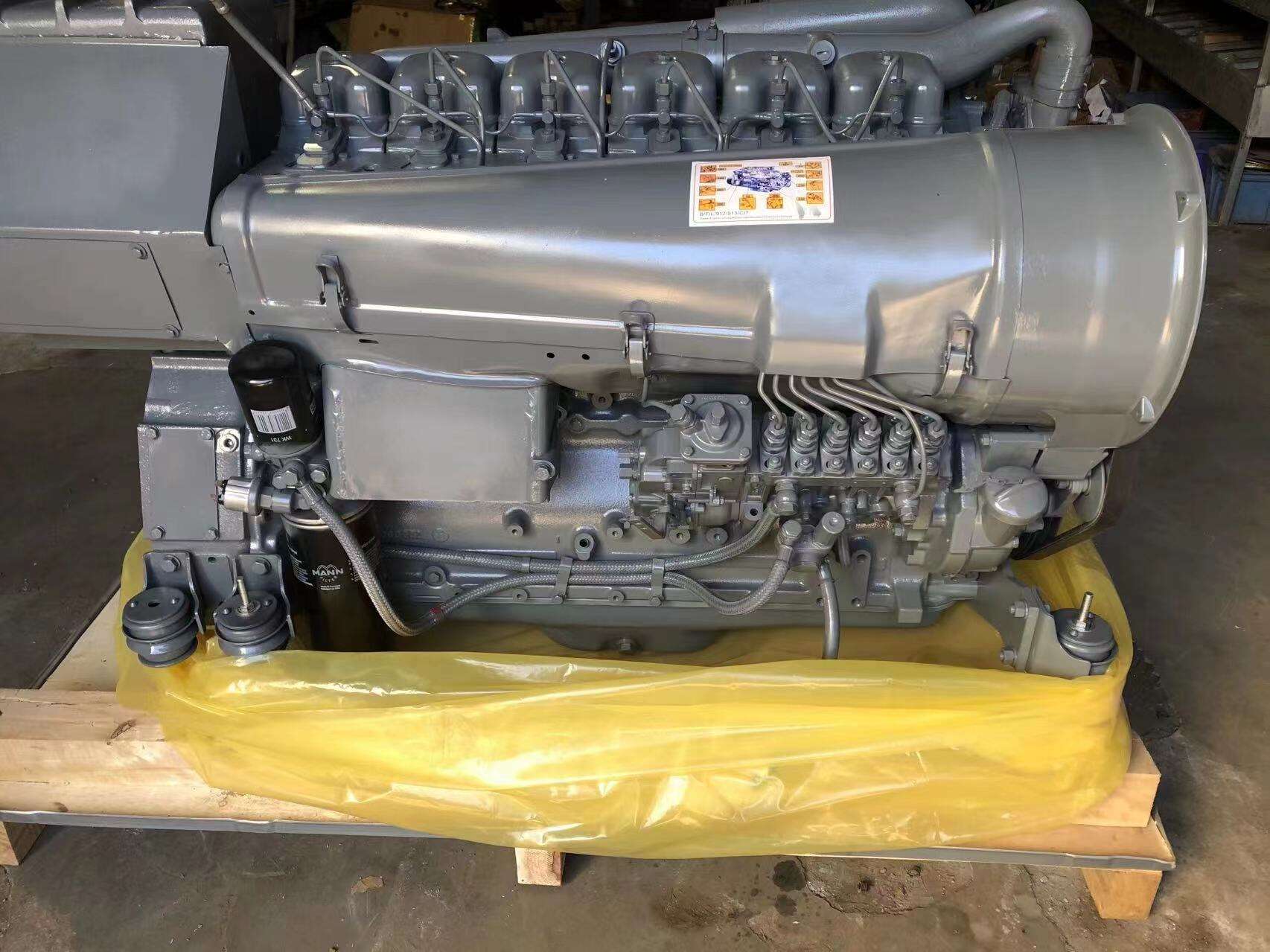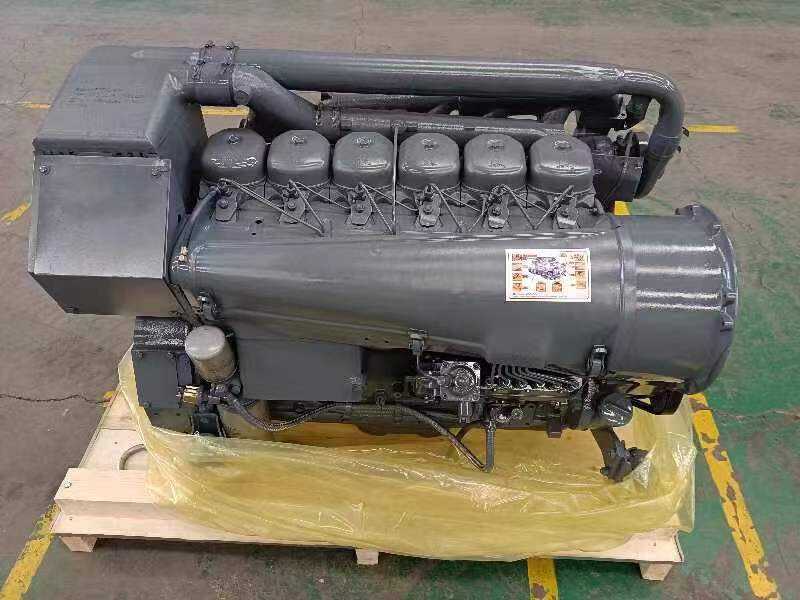Why Regular Maintenance Matters for Your Deutz Engine
Keeping an engine running at its best requires regular maintenance, especially true for heavy duty machines like the Deutz engine where neglect just isn't an option. These engines have built a reputation for lasting longer than most, thanks to their sturdy build and efficient operation. That's why they show up everywhere from bulldozers on construction sites to tractors plowing fields and even backup generators at remote facilities. Without proper care though, all that reliability goes out the window. Maintenance isn't just about following a checklist either it's about understanding what makes these powerhouses tick so operators can catch problems before they become expensive headaches down the road.
Preserving Engine Longevity
Minimizing Wear and Tear
Deutz engines are known for their durability, though no machine escapes the effects of friction and metal fatigue entirely. When oil gets dirty or contaminants build up inside, components start wearing down faster than they should. Regular maintenance matters a lot here. Changing the oil on schedule and swapping out filters keeps pistons running smooth and bearings intact over the long haul. Neglect these basics and small issues become big problems down the road. Most mechanics will tell anyone who asks that proper care can literally double an engine's lifespan in many cases.
Preventing Overheating and Mechanical Stress
Overheating ranks among the top reasons engines get damaged over time. If someone neglects checking their cooling system on a regular basis, problems tend to develop with parts such as radiators and thermostats eventually leading to dangerous temperature increases. Keeping an eye on coolant levels and making sure air passages stay clear helps keep Deutz engines running at safe temperatures. This simple maintenance prevents serious issues down the road including warped components caused by excessive heat buildup.
Enhancing Operational Efficiency
Optimal Fuel Combustion
How well a Deutz engine runs depends heavily on efficient fuel burning. When air filters get dirty or injectors start acting up, they mess with the right mix of air and fuel, so combustion doesn't happen properly. The result? Higher fuel usage for sure, plus more pollution coming out of the exhaust and those annoying carbon buildups forming inside the engine block. Keeping things running smoothly means regular checkups where mechanics clean out those filters, adjust injectors as needed, and make sure combustion chambers stay free from debris. These simple steps go a long way toward getting better mileage from each tank of fuel while keeping harmful emissions down.
Consistent Power Output
For anyone operating generators or farm machinery, Deutz engines have always been known for their dependable power output. When maintenance gets neglected, problems start showing up fast - RPMs jump around, cylinders misfire, and torque just drops off. Regular checkups make sure everything works together properly across the board. Ignition systems stay sharp, fuel delivery remains consistent, and overall performance stays stable even when workload changes from day to day.
Preventing Costly Downtime
Early Detection of Problems
When engines suddenly break down, it really messes with productivity across the board. Regular checkups let mechanics spot problems long before they turn into big headaches. Things like worn out gaskets, frayed belts, or those pesky coolant leaks? They cost next to nothing to fix right away but turn into wallet drains if ignored for too long. Most shops know this all too well from experience.
Avoiding Emergency Repairs
Fixing things when they break down tends to cost a fortune and creates all sorts of headaches, particularly when machinery sits out in some backwoods location nobody wants to trek to. Keeping up with routine maintenance on those Deutz engines keeps them running smoothly most of the time. When technicians check oil levels, replace worn parts before they fail completely, and clean air filters regularly, it makes a world of difference. Fewer breakdowns mean less overtime for repair crews, lower expenses overall, and workers can actually stick to their regular schedules instead of scrambling to fix something at odd hours when nobody's expecting it.

Meeting Warranty and Compliance Standards
Upholding Manufacturer Warranty
Most Deutz engines include a factory warranty, but there's usually a catch – proper maintenance records are needed to keep it valid. If someone skips regular oil changes or neglects coolant replacements according to schedule, they might find themselves without warranty protection when something goes wrong. The bottom line is simple record keeping makes all the difference. When maintenance logs are complete and organized, owners stay within warranty guidelines and have proof should they need to file for covered repairs later on.
Emission and Safety Compliance
Deutz engines come built to handle those tough emission rules, particularly for markets across Europe and parts of North America where standards run high. The thing is, if these engines aren't kept up properly, they'll start pumping out more pollutants than allowed, which means trouble with compliance officers down the road. Keeping everything clean and working right matters a lot. That means checking those exhaust filters regularly, making sure all the sensors are doing their job, and generally looking after the whole emission control system so it doesn't break down when inspectors show up unannounced.
Tailoring Maintenance to Application and Environment
Adjusting for Operating Conditions
Maintenance requirements for Deutz engines really depend on their specific application environment. For instance, when these power units run in super dusty places like active construction zones or mining operations, the air filters just get clogged way faster than normal. Mechanics will tell anyone who listens that those filters need replacing every few hundred hours instead of the standard intervals. Then there's the whole cold weather challenge. Engines running in sub-zero temperatures absolutely demand different oil formulations and sometimes even require dedicated glow plug systems to start properly. Smart operators know their stuff and adjust maintenance plans according to actual field conditions rather than sticking strictly to factory recommendations. This kind of hands-on approach keeps the iron running smooth and avoids unexpected breakdowns down the road.
Monitoring Hours vs. Calendar Time
Rather than sticking to those generic maintenance schedules everyone follows, many technicians actually base their work on how long engines have been running. Take oil changes for instance they often happen around the 250 hour mark instead of just three months down the road. Makes sense really, because it shows exactly what the machine has gone through. This method stops people from doing unnecessary maintenance work while also making sure important inspections don't get spaced out too far apart. Most mechanics will tell you this way gives a much better picture of what condition everything is in after real world use.
Professional vs. In-House Maintenance
The Value of Skilled Technicians
Some basic maintenance stuff can be done right on site, things like adding fluids when they run low or swapping out old filters. But when it comes to trickier work like adjusting valves, running proper diagnostics, or calibrating those electronic controls, that really needs to go to someone who knows what they're doing. The certified Deutz service folks? They've got all the right equipment and experience for this kind of job. Trying to skip them means risking damage to the engine itself down the road.
Keeping Accurate Maintenance Records
Whether maintenance is performed internally or by a service partner, keeping detailed records is essential. These should include dates, engine hours, parts replaced, and observations noted during service. A well-documented history allows for trend analysis and can help identify recurring issues before they become failures.
Investing in Genuine Deutz Parts and Fluids
Importance of OEM Components
Using original parts ensures that all replacements meet the specifications and tolerances of the Deutz engine. Aftermarket components may not offer the same durability or performance, potentially leading to premature wear or compatibility issues. From oil filters to injectors, genuine Deutz parts contribute directly to long-term reliability.
Using Recommended Oils and Fluids
Deutz engines require lubricants and coolants that meet strict technical standards. Using the wrong oil grade or coolant formulation can lead to poor lubrication, overheating, or internal corrosion. Always refer to the manufacturerâs guidelines when selecting fluids, and avoid mixing products from different brands unless compatibility is confirmed.
Conclusion: Maintenance Is the Key to Reliability
A Deutz engine represents a solid investment in reliable power generation over the long term. But this equipment won't live up to expectations without proper care and attention. Regular maintenance extends operational lifespan significantly while boosting overall efficiency levels. It also helps avoid expensive breakdowns down the road and keeps everything running within required standards. The smart approach involves creating customized service plans, sticking with authentic replacement components, and partnering with certified technicians who understand these engines inside out. With such measures in place, operators will find their Deutz units performing consistently well across countless operating hours.
FAQ
How often should I service my Deutz engine?
Service intervals vary based on engine model and usage but typically range from every 250 to 500 operating hours. Always consult the Deutz maintenance manual for model-specific guidelines.
Can I perform maintenance on my Deutz engine myself?
Basic tasks like checking oil levels and replacing filters can be done in-house. However, more complex procedures should be carried out by certified Deutz technicians to maintain warranty and performance.
What type of oil is recommended for a Deutz engine?
Deutz-approved high-performance engine oils that meet their technical specifications should be used. Refer to the engine manual or consult a dealer for the correct oil grade and change intervals.
Why is record-keeping important in engine maintenance?
Maintenance logs help ensure compliance with warranty requirements and allow for early detection of recurring issues. They are also valuable when reselling equipment, as they demonstrate responsible ownership.
Table of Contents
- Why Regular Maintenance Matters for Your Deutz Engine
- Preserving Engine Longevity
- Enhancing Operational Efficiency
- Preventing Costly Downtime
- Meeting Warranty and Compliance Standards
- Tailoring Maintenance to Application and Environment
- Professional vs. In-House Maintenance
- Investing in Genuine Deutz Parts and Fluids
- Conclusion: Maintenance Is the Key to Reliability
- FAQ

